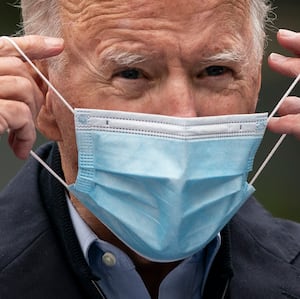Whatever the voters decide in November, one thing is certain. Mitch McConnell will be there as the Republican leader to enforce his party’s obstructionism on immigration and climate and voting rights, and to make sure a Democratic president doesn’t get any legislative wins.
You can add gun safety to that list.
Unless McConnell has an epiphany after the horror in Uvalde, Texas, where an 18-year-old gunman entered an elementary school to murder 19 children, expect absolutely no legislative action to address these shamefully common tragedies.
Fred Guttenberg, whose 14-year-old daughter Jamie was killed in the 2018 Parkland school shooting, called McConnell “the common theme in doing nothing on gun violence.”
Elected in a landslide in 2020 to a seventh term by the voters of Kentucky, McConnell next year will become the longest-serving Senate leader in history, surpassing Democrat Mike Mansfield, a statesman who was beloved by both sides of the aisle. McConnell, for his part, is reviled by Democrats for his blanket refusal to consider the needs of the nation and the brute force tactics that he uses to advance GOP priorities.
At age 80, McConnell, dubbed “the old crow” by Donald Trump, is holding his own against the former president. In an interview last week with The New York Times, the minority leader touted his recent trip to Ukraine and how he is moving the GOP away from its isolationist stance. He boasted about only having 11 GOP senators vote against aid to Ukraine and lauded Sen. Ted Cruz as “courageous” for breaking with the far right and backing the aid package.
Say what you want about his ethics and values, but he’s a political survivor and a masterful tactician. Is there anything that can stop McConnell?
“The threat to his legacy is Trump,” says Jim Kessler, a longtime Capitol Hill veteran, now with the moderate Democratic group Third Way. “He has to steel up his caucus” with loyalists who will keep him in power.
McConnell’s leadership is secure for now, but he’s on Trump’s vendetta list.
“If Trump is the nominee, he will run on removing McConnell as leader, and that is a certainty,” says Kessler. “The question in 2024, do they boot him out because of Trump? I’m sure he’s obsessed with that, and if he isn’t, he’s not as smart as I think he is. [House Minority Leader] Kevin McCarthy came back aboard [after criticizing Trump for inciting the Jan. 6 insurrection] and Trump forgave him. There’s no going back for McConnell.”
A new book, Betrayal: How Mitch McConnell and the Senate Republicans Abandoned America, describes key moments when McConnell put personal ambition and party over country to do the lasting damage that could yet be his undoing.
The author, Ira Shapiro, sets the scene, a dreary rainy cold day, Jan. 9, 2009, when McConnell brings his caucus together to plan strategy. His mood is bad not because of the weather but because the new president, not yet inaugurated, has a high approval rating. McConnell had to bring him down. “His goal, which he stated clearly, was for Obama to fail and he had no concern about the impact his obstructionism would have on actual Americans, including those who lived in his home state of Kentucky.”
At that moment, by Shapiro’s account, McConnell abandoned the traditional role of a Senate leader who works to overcome partisan divisions, and unambiguously turned into an opposition leader. “He began immediately to transform a Senate struggling unsuccessfully to rise above the polarization of American politics into a bitterly partisan, paralyzed Senate where no effort would be made to overcome the divisions,” Shapiro writes. Where former House Speaker Newt Gingrich declared “politics is war,” McConnell embraced “victory at all costs” to become the Senate’s “architect of division,” doing everything he could to create tension, not legislation.
About the title of his book, Betrayal, Shapiro says he didn’t choose the term lightly to describe McConnell and the caucus he led. “We had an unhinged president during a pandemic, a president making it obvious that he would not accept a loss [in the 2020 election]—and what do they do? They rise from their torpor to confirm Amy Coney Barrett a week before the election.”
McConnell shattered Senate norms to install three Supreme Court justices, first by eliminating the filibuster for nominees, then by holding open the seat of the late Justice Antonin Scalia and denying President Obama’s nominee even a hearing because it was too close to the 2016 election. Then, when Justice Ruth Bader Ginsburg died in September 2020, McConnell made up a new rule and rushed Comey Barrett’s confirmation through, asserting it was OK when the party in power controlled the White House and Senate.
“His legacy was secure. Very few people, including presidents, have ever put more of a stamp on our country,” Shapiro writes. “What McConnell lacked was a moral compass that would cause him to rise above political calculation.”
McConnell under-estimated Trump’s depravity (Shapiro’s word), thinking that after the election, the defeated president would fade away of his own accord. He didn’t see any harm in humoring Trump as he spread what came to be known as the Big Lie that the election had been stolen from him. It took McConnell five weeks after the November election before he congratulated Joe Biden on his victory, a man he had served with and known for 35 years.
On the morning of Jan. 6, McConnell spoke on the Senate floor. He said the election wasn’t particularly close, strong words for a Republican, and he warned of the danger set in motion by Trump. “If this election were overturned by mere allegations by the losing side, our democracy would enter a death spiral. We’d never see the whole nation accept an election again. Every four years would be a scramble for power at any cost.”
Beautiful words, but by the time they were spoken, about 70 percent of the 74 million who had voted for Trump thought the election had been stolen. That’s 50 million people.
Later that same day, attendees at Trump’s “Stop the Steal” rally stormed the U.S. Capitol. A clearly shaken McConnell called it “a failed insurrection,” and Democrats moved to impeach Trump. McConnell then adopted his classic two-faced Janus pose, criticizing the House for rushing the impeachment process while stalling on a date for a Senate trial that wouldn’t begin until Trump was out of office.
On the last day of Trump’s second Senate trial, Feb. 13, McConnell gave a speech that rivaled anything any Democrat said in its condemnation of the former president. He called Trump’s conduct on Jan. 6 a “disgraceful dereliction of Duty,” and declared Trump “practically and morally responsible for provoking the events of the day.”
Beautiful words, but before he delivered them on the Senate floor McConnell voted to acquit Trump on narrow, made-up procedural grounds that his conduct was “moot” because a former president is not constitutionally eligible for conviction. McConnell had refused to accept the single article of impeachment from the House while Trump was still in office, then turned around and said you cannot impeach and remove a former president. McConnell’s duplicity saved Trump even though he earned the former president’s enduring enmity.
McConnell was the only Republican senator who attended Beau Biden’s funeral in 2015, “a credit to him and an embarrassment to the other Senate Republicans, many of whom should have been there,” Shapiro writes. But despite their personal history and the country’s mounting problems, “Biden could not be allowed to succeed, irrespective of America’s needs. In that fundamental sense, McConnell viewed President Biden in 2021 exactly the way he had viewed President Obama in 2009.”
Democratic holdouts in a 50-50 Senate spared McConnell from shouldering the blame for Biden’s stalled agenda, but he helped orchestrate his party’s 47-3 opposition to Justice Ketanji Brown Jackson. With her confirmation certain, it would have been easy to celebrate and elevate her as the first Black female justice. Instead, McConnell disparaged her as a candidate of the radical left. “If there’s a chance to bring the country together, he never takes it,” says Shapiro.
With another school shooting to sadden and sicken the nation over little kids blown into smithereens by an assault weapon that no civilian should have, will McConnell once again choose the path that sides with the gun manufacturers and the Second Amendment absolutists?
So far, he’s profited from the division he’s helped to create. But one thing’s for sure: When given the choice to do the right thing for the country or the advantageous thing for himself, the old crow puts America second.







